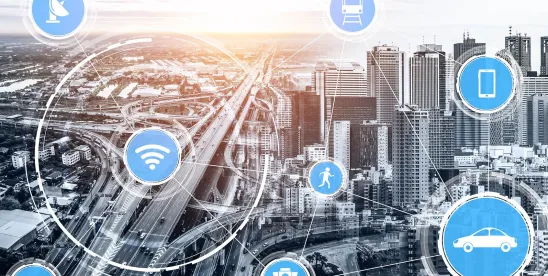Special Update — Trump Administration and Tariff Policies
- Foley & Lardner partner Vanessa Miller commented on the Trump administration’s imposition of automotive tariffs in the Associated Press article, “Trump’s latest auto tariffs explained: What car buyers should know this year.” Miller, who is chair of Foley’s national Automotive Team, said that while some companies will be able to pivot their operations to the United States, others are too integrated with factories in Mexico and elsewhere to make a speedy transition.
- Foley & Lardner provided an update for multinational companies regarding the potential for criminal enforcement of trade, import, and tariff rules. Visit Foley & Lardner’s 100 Days and Beyond: A Presidential Transition Hub for more updates on policy analysis and the business implications of the Trump administration across a range of areas.
- Fully assembled automobiles are subject to a 25% U.S. import tariff,effective at 12:01 a.m. on April 3, 2025, through President Trump’s March 26 proclamation (90 FR 14705). An accompanying Fact Sheet states: “Importers of automobiles under the United States-Mexico-Canada Agreement will be given the opportunity to certify their U.S. content and systems will be implemented such that the 25% tariff will only apply to the value of their non-U.S. content.”
- U.S. import tariffs of 25% on certain major auto parts (engines and engine parts, transmissions and powertrain parts, and electrical components) are scheduled to take effect no later than May 3. The March 26 proclamation states “the ad valorem tariff of 25 percent described in clause (1) of this proclamation shall not apply to automobile parts that qualify for preferential treatment under the USMCA until such time that the Secretary, in consultation with CBP, establishes a process to apply the tariff exclusively to the value of the non-U.S. content of such automobile parts and publishes notice in the Federal Register.”
- Reciprocal tariffs announced April 2 will be established at a baseline of 10% and ranging up 49% beginning on April 5. The reciprocal rates include 34% on China, 20% on the European Union, 46% on Vietnam and 32% on Taiwan. This announcement did not impose reciprocal tariff rates on Canada or Mexico.
- The European Union intends to pursue countermeasures in response to the Trump administration’s reciprocal tariffs.
- Mexican President Claudia Sheinbaum indicated trade negotiations are ongoing with the Trump administration, and Mexico thus far has not announced retaliatory tariffs.
- The Canadian government imposed retaliatory tariffs on C$60 billion ($42 billion) worth of U.S.-made goods in response to U.S. import tariffs on steel and aluminum.
- U.S. import tariffs on copper could be implemented before the 270-day deadline established in a February 25 executive order which directed the government to assess possible levies on the metal, according to unnamed sources in Bloomberg.
- The U.S. Senate on April 2 voted 51-48 to approve a joint resolution (SJ Res 37) to terminate the national emergency declared on February 1, 2025, by the President in Executive Order 14193 (90 Fed. Reg. 9113) to impose tariffs on imports from Canada. The measure does not have the force of law, however it notably received support from four Republican Senators: Rand Paul (KY), Susan Collins (ME), Lisa Murkowski (AK) and Mitch McConnell (KY). The U.S. House recently took steps to block the ability of tariff critics to expedite a floor vote on the issue.
- Dozens of Chinese companies were added to a Commerce Department entity list to restrict trade due to national security concerns.
Automotive Key Developments
- Foley & Lardner provided an update on a notable federal court ruling against Stellantis in a supplier pricing dispute, and assessed the impact of the case in regards to what constitutes a valid requirements contract under Michigan law.
- Certain major automakers could incur up to $1 billion to $7 billion annually in U.S. import costs, depending on the breadth and duration of the 25% automobile and auto parts tariffs announced by President Trump on March 26. The effects of these sector-specific tariffs in their current form could cost the auto industry up to $110 billion annually, according to investment bank estimates featured in The Wall Street Journaland Bloomberg.
- S&P Global Mobility predicts U.S. light-vehicle sales could decline to between 14.5 and 15 million units annually if the automotive import tariffs proceed as announced, and the duties could “create a reset of the automotive value chain within North America and the world.”
- Nearly 50% of U.S. new light vehicles sold in 2024 were assembled outside the U.S., and up to 70% of vehicles sold in the U.S. in a typical year contain imported components. New-vehicle prices could increase by 11% to 15% due to the pass-through effects of automotive import tariffs, and consumers could encounter tariffed inventory at dealerships by May or sooner.
- President Trump warned U.S. automakers not to raise prices in response to tariffs, according to unnamed sources in The Wall Street Journal. The president stated in an NBC News interview that he “couldn’t care less” if foreign automakers raised prices because consumers would instead “buy American cars.” In the interview, the president did not comment on the potential for higher prices in domestically manufactured vehicles that may result from duties on imported components.
- Cox Automotive estimates the cost impact of tariffs could make at least half of the 20 vehicle models priced below $30,000 “unviable for the U.S. market.”
- Bloomberg reports Senate Republicans intend to utilize the Congressional Review Act to revoke the Environmental Protection Agency’s authority to grant Clean Air Act waivers allowing California to impose emissions standards that exceed federal regulations.
- U.S. new light-vehicle sales in March reached a SAAR of 17.8 million units, representing an increase of 11% year-over-year, according to preliminary estimates from GlobalData. Increased volumes in March were attributed to accelerated consumer purchases to avoid tariffs.
OEMs/Suppliers
- Hyundai on March 24 announced plans to invest an additional $21 billion in U.S.-based vehicle manufacturing and supply chains for critical materials, including a new steel mill in Louisiana.
- Cleveland-Cliffs plans to lay off over 1,200 workers in Michigan and Minnesota due to market challenges that include the expectation for declining automotive demand amid higher prices caused by tariffs.
- Toyota and Honda stated they currently have no plans to reduce manufacturing in Ontario, Canada in response to U.S. trade policies.
- Certain luxury brands that performed well during previous market disruptions could be significantly exposed to automotive import tariffs because the vehicles do not meet the U.S.-Mexico-Canada free-trade agreement rules.
- The American Trucking Associations estimates automotive import tariffs could add upwards of $30,000 to the cost of a new Class 8 truck.
- Crain’s Detroit provided estimates of the Detroit Three automakers’ U.S. plant utilization rates, and an overview of which factories in Michigan have excess capacity.
- The UAW in a March 26 statement praised President Trump’s automotive import tariffs, and suggested automakers could shift production to the U.S. “within a matter of months” by “adding additional shifts or lines in a number of underutilized auto plants.”
- At least two major automakers recently stopped tracking purchases with minority-owned suppliers, according to a report in Crain’s Detroit.
- Taiwanese automotive lighting supplier TYC Americas plans to invest $18.75 million to establish production in Wixom, Michigan.
- The Chinese government intends to restructure a number of China’s state-owned automakers to improve competitiveness and market share. This could affect automakers including Dongfeng Motor Group, China FAW Group, Changan Automobile Co., SAIC Motor Corp., GAC Motor Co., BAIC Motor Co., Chery Automobile Co., and Jianghuai Automobile Co.
- Toyota Chairman Akio Toyoda spoke to Automotive News about the challenges of automotive consolidation.
Market Trends and Regulatory
- The National Highway Traffic Safety Administration (NHTSA) launched an investigation into more than 2 million Honda vehicles over reports that engines can fail to restart from idling.
- The U.S. Commerce Department delayed a preliminary ruling on a Chinese graphite anode countervailing duty case to May 19, 2025. North American graphite miners had petitioned last year to impose a 920% tariff on Chinese suppliers to counter China’s control over critical minerals. Graphite is a key component in EV lithium-ion batteries.
- President Trump stated U.S. House Speaker Mike Johnson is “working on” a proposal that could allow tax deductions for the interest paid on auto loans for U.S.-made vehicles. Details of the plan were not provided.
- President Trump nominated Derek Barrs, a former Florida Highway Patrol chief, to head the Federal Motor Carrier Safety Administration.
- An estimated 1.73 million vehicles were repossessed in the U.S. in 2024, representing the highest level since 2009.
- The University of Michigan’s March 2025 Index of Consumer Sentiment fell to 57, the lowest level since 2022. Two-thirds of consumers expect higher unemployment in the next year, the highest reading since 2009.
- The Conference Board’s March 2025 Consumer Confidence Survey found that short-term expectations for income, business and labor-market conditions were at the lowest level in 12 years.
- New vehicle registrations in the European Union declined 3% year-over-year in the first two months of 2025, according to analysis from the European Automobile Manufacturers’ Association (ACEA). Registrations of new battery-electric vehicles (BEVs) in the EU increased 28.4% YOY, reaching 255,489 units for a 15.2% share of the total EU market. New EU registrations of hybrid-electric vehicles rose 18.7% YOY for a 35.2% share of the EU market.
- The European Commission granted final approval to Tesla’s 2025 EU emissions pool, which includes Stellantis, Toyota, Ford, Honda, Mazda, Subaru and Suzuki. The bloc’s other key pool is managed by Mercedes-Benz and it includes several Geely brands.
- The European Commission fined 15 automakers and the European Automobiles Manufacturers’ Association (ACEA) €458 million ($495.3 million) over participating in anticompetitive agreements concerning end-of-life vehicle recycling.
- U.S. traffic fatalities in the first half of 2024 were 25% higher compared to the same period in 2014. Pedestrian fatalities in H1 2024 were up by 48% compared to H1 2014.
Autonomous Technologies and Vehicle Software
- Ford intends to use artificial intelligence systems and Nvidia GPUs to improve the process of designing and bringing new vehicles to market.
- Waymo plans to launch robotaxi services in Washington D.C. in 2026, following previously announced expansions in Miami and Atlanta. Waymo currently operates in parts of San Francisco, Los Angeles, Phoenix, and Austin.
- Lyft could offer driverless rides on its platform “as soon as this summer.”
- Caterpillar will integrate lidar technology from Luminar to the Cat Command autonomy platform on its heavy-duty construction equipment.
- Volkswagen will partner with Valeo and Mobileye to develop Level 2 advanced driver assistance systems (ADAS) for upcoming vehicle models. The Society of Automotive Engineers (SAE) defines Level 2 as driver support features that require constant control and supervision.
Electric Vehicles and Low-Emissions Technology
- BYD reported 2024 net income of 40 billion yuan ($5.6 billion) on total revenue of 777.1 billion yuan ($107 billion), representing YOY increases of 34% and 29%, respectively. BYD’s global vehicle sales rose 41% YOY to 4.27 million units in 2024, and it has a goal to double sales outside of China to over 800,000 units in 2025.
- The Michigan Strategic Fund approved the transfer of over $180 million in state and local incentives to LG Energy Solution after GM exited a $2.5 billion project to construct an EV battery plant in Lansing.
- Rivian will spin out its electric micromobility platform, Also Inc., into a new startup focused on lightweight vehicles that include scooters and bicycles.
- Governor Gavin Newsom announced California has 178, 549 public and shared private EV chargers, which is 48% higher than the amount of gasoline nozzles in the state.
- Contract electronics maker Hon Hai Precision Industry, known as Foxconn, is reported to be pursuing an agreement to produce EVs for Mitsubishi.






 />i
/>i

